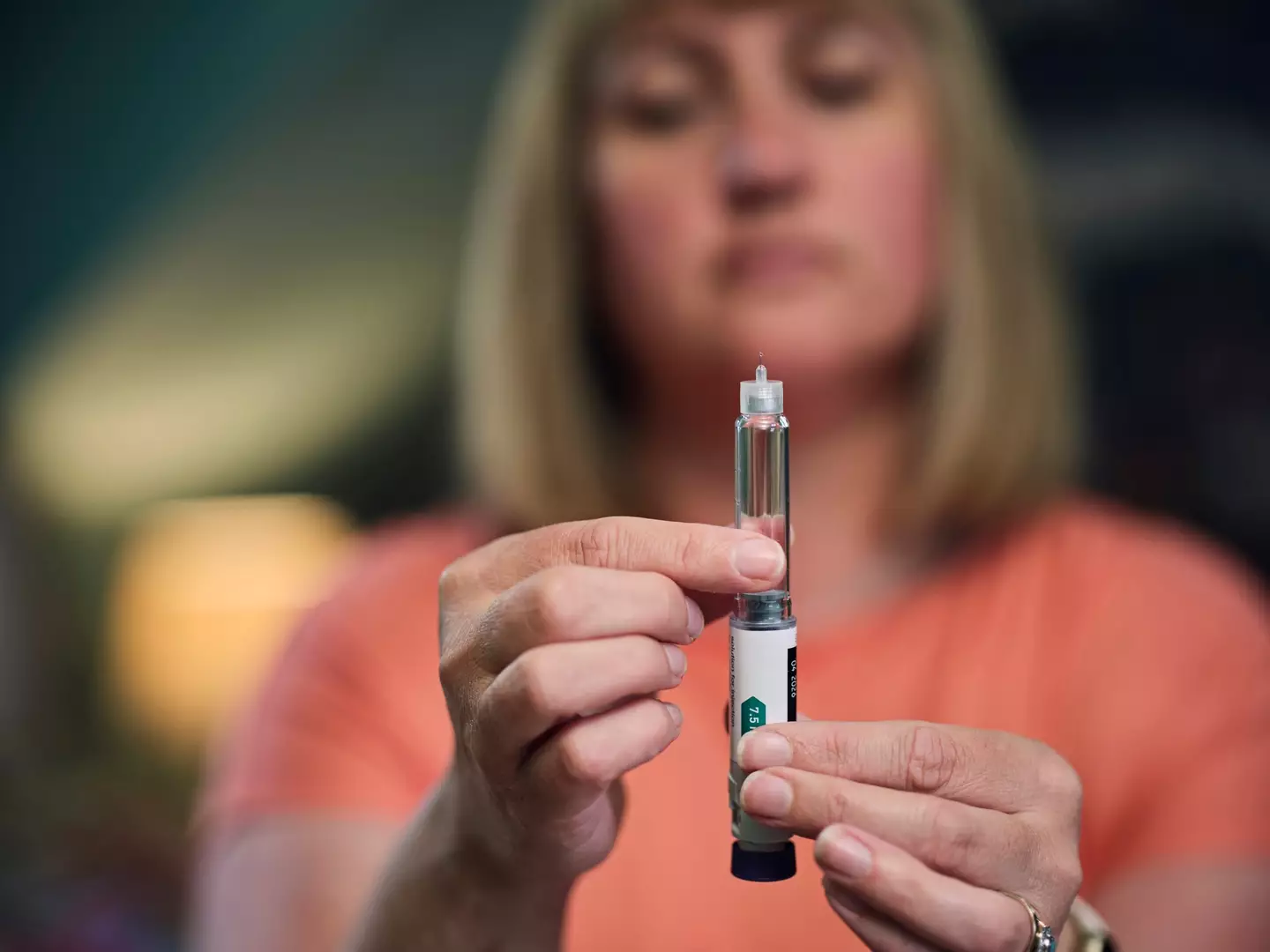
New research suggests weight-loss drugs could reduce the risk of dementia and stroke.
Experts also claim people with type 2 diabetes who are using the jabs may be less likely to die prematurely.
It’s believed around 1.5 million people currently take weight loss jabs, with many opting to self-inject semaglutide to ‘help manage weight’, said Dr Vijaya Surampudi, a physician nutrition specialist and assistant director of the UCLA Weight Management Program (RFO).
U.S Food and Drug Administration-approved drugs for chronic weight management include Wegovy and Zepbound.
Advert
In 2017, Ozempic was approved by officials for treating type 2 diabetes only, despite some claiming to use it for weight-shedding purposes.
As weight loss jabs’ popularity rises, more and more scientists are dedicating their time to understanding how the injectable drugs can impact our health - and the results apparently could be pretty positive.

In a newly published study, researchers from Taiwan examined 60,000 people from across the world with type 2 diabetes and obesity.
Advert
Half of the study’s participants - who had an average age of 58 - were given GLP agonist drugs Wegovy and Mounjaro, while the remaining members of the sample were asked to use anti-diabetic medication.
Results, published in the journal JAMA Network Open, found that after seven years, people who had taken Wegovy and Mounjaro appeared to have a 37 percent lower risk of dementia than those on the anti-diabetic medication.
They also exhibited 19 percent reduced risk of stroke, as per the report.
According to the study’s authors, their follow-up findings suggested that weight-loss jabs offered ‘potential neuroprotective and cerebrovascular benefits beyond glycemic control, potentially improving long-term cognitive and survival outcomes in adults with type 2 diabetes and obesity’.
Advert
However, the academics added that they would need to further study the subject to confirm their suspicions.

Speaking about the lowered dementia and stroke risks, Professor Tara Spires-Jones, director of the Centre for Discovery Brain Sciences at the University of Edinburgh and group leader in the UK Dementia Research Institute, said: “This is a very interesting study adding to evidence that GLP1 receptor agonists are associated with a lower risk of dementia in people with type 2 diabetes and obesity.
“This type of study cannot determine whether the drugs reduced disease risk by directly protecting the brain. It is highly likely that effectively treating type 2 diabetes and obesity would reduce dementia and stroke risk, as they are known risk factors for these conditions.
Advert
“Further work is needed, including randomised clinical trials to confirm these drugs are protective in people with diabetes and obesity and other trials are needed to determine whether these drugs will be protective in people who do not have type 2 diabetes and obesity.”
How does type 2 diabetes increase dementia risk?

According to Alzheimers.org, people with diabetes are at an increased risk of developing dementia compared to those without diabetes.
Advert
This is possibly because diabetes is linked to various other dementia risk factors, including high blood pressure, high cholesterol and obesity.
Some changes that occur in Alzheimer’s disease are similar to those in diabetes, the site stated.
This included nerve cells in the brain that become resistant to the effect of insulin, causing a build-up of amyloid and tau proteins in the brain.
Yhe National Institutes of Health (NIH) stated that type 2 diabetes is a ‘robust predictor of cognitive impairment and decline in older adults’, with multiple population-based studies reporting an association.
Topics: Ozempic, Mounjaro, Science, World News, Health, Dementia, Mental Health
